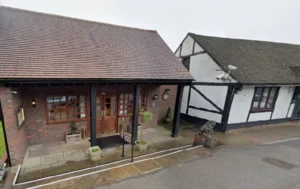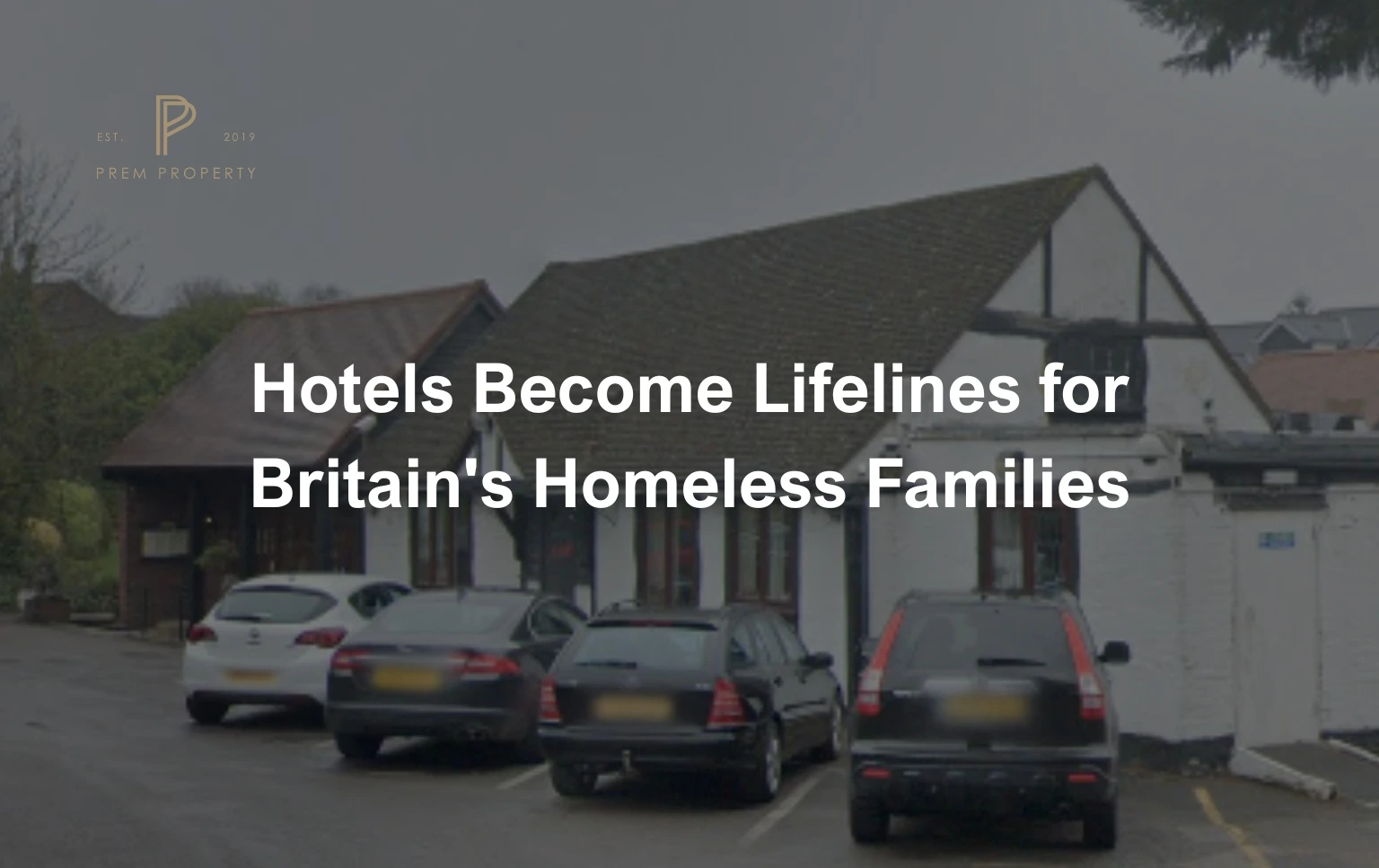Britain’s housing emergency has sparked remarkable innovation across local authorities, with former hospitality venues emerging as unexpected sanctuaries for displaced families. Councils increasingly transform closed hotels into temporary accommodation, providing dignified alternatives to cramped bed-and-breakfast establishments and overcrowded hostels.
The hospitality industry’s pandemic struggles created unexpected opportunities for housing solutions. Numerous hotels closed permanently, leaving suitable buildings available for alternative uses. Forward-thinking councils recognised these properties’ potential, converting them into family-focused emergency accommodation with remarkable success.
Unlike traditional temporary housing, converted hotels offer spacious rooms with private facilities. Former wedding venues provide communal areas where children can play safely whilst parents access cooking facilities and laundry services. These environments foster community amongst residents whilst maintaining privacy and dignity during difficult transitions.
The Conversion Revolution
Hotel conversions represent paradigm shifts in emergency housing provision. Traditional approaches squeezed families into single rooms with shared bathrooms down corridors. Conversely, converted hotels typically offer ensuite facilities, adequate space for belongings, and areas for children’s homework and play.
Ealing Council exemplifies this innovative approach through their transformation of The Barn Hotel in West End Road, Ruislip. Originally a fine-dining restaurant and wedding venue, The Barn closed during the pandemic but found new purpose housing over 70 vulnerable families. The council’s extended lease demonstrates the long-term viability of such conversions.
The Barn’s transformation showcases how former hospitality venues adapt perfectly to family accommodation. Spacious bedrooms accommodate entire families comfortably, whilst ensuite bathrooms provide essential privacy. The hotel’s commercial kitchen serves all residents, fostering community whilst enabling home-cooked meals.
Catherine Virdee, The Barn’s site manager, oversees this remarkable transition from wedding venue to family sanctuary. Her leadership ensures the facility operates as a “stepping stone to a better life” rather than merely temporary storage for displaced households.

Superior Living Conditions
Converted hotels offer substantial improvements over traditional emergency accommodation. The Barn Hotel exemplifies these advantages, with room sizes far exceeding standard bed-and-breakfast offerings. Each bedroom provides proper beds for every family member, adequate space for belongings, and private ensuite facilities.
Kitchen access transforms daily routines dramatically at The Barn. Families prepare healthy meals using the hotel’s fully-equipped kitchen rather than relying on expensive takeaways. The communal dining room creates social opportunities whilst children benefit from nutritious, home-cooked food during uncertain times.
Outdoor amenities distinguish converted venues significantly. The Barn’s extensive gardens feature play equipment where children exercise safely and socialise with peers. These outdoor spaces provide respite from confined living whilst fostering friendships that support families through difficult transitions.
Indoor recreational facilities enhance resident wellbeing further. The Barn includes a dedicated games room complete with consoles, providing entertainment and normalcy for children experiencing housing disruption. Additionally, quiet study areas support educational continuity despite accommodation changes.
Cost-Effectiveness Drives Adoption
Financial pressures motivate many council conversions, as hotel acquisitions often prove more economical than ongoing commercial accommodation costs. Ealing Council’s experience demonstrates these economic benefits clearly, with The Barn housing over 70 families more cost-effectively than equivalent bed-and-breakfast placements.
The borough faces unprecedented demand for emergency housing, supporting approximately 2,500 households in temporary accommodation at enormous expense. At peak periods, over 700 homeless families occupied commercial accommodation, creating unsustainable financial pressure on council budgets whilst providing inadequate living conditions.
Ealing’s housing crisis reflects broader market pressures affecting working families. Council rents average just 25% of equivalent private market rates, yet demand far exceeds supply. Over 7,000 families currently await council housing, highlighting the scale of unmet need across the borough.
The Barn conversion addresses these pressures whilst improving resident experiences significantly. Block booking arrangements enable predictable budgeting rather than fluctuating nightly rates. Moreover, enhanced facilities reduce ancillary costs associated with takeaway food dependency and travel to laundry facilities.

Addressing the Root Crisis
Hotel conversions provide immediate relief whilst longer-term housing solutions develop. However, sustainable approaches require addressing underlying causes of housing instability. Rising private rents continue outpacing wage growth, forcing working families into emergency accommodation systems.
Guaranteed rent solutions emerge as crucial components in comprehensive housing strategies. These arrangements provide landlords with assured income whilst expanding accommodation options for vulnerable families. Prem Property exemplifies this approach, offering landlords guaranteed rental payments regardless of tenant circumstances.
Such solutions benefit multiple stakeholders simultaneously. Property owners receive predictable income streams without void periods or tenant management responsibilities. Councils access expanded accommodation pools without requiring direct property ownership. Families secure improved housing standards through professional management services.
Prem Property’s guaranteed rent solution addresses landlord concerns about housing benefit tenants whilst ensuring quality accommodation for families in need. Their comprehensive approach includes property maintenance, tenant support, and administrative management, creating win-win arrangements across the housing ecosystem.
Success Stories Inspire Replication
Ealing’s Barn Hotel conversion programme demonstrates the transformative potential of creative housing solutions. Families transitioning from cramped commercial hotels describe the facility as “like heaven” compared to previous accommodation experiences. Children particularly benefit from outdoor play areas and social opportunities with peers.
Resident testimonials highlight the psychological benefits of dignified accommodation. One mother, previously confined to a single hotel room with her 10-year-old child, celebrates The Barn’s cooking facilities and laundry access. These basic amenities restore autonomy whilst reducing daily expenses significantly.
The facility’s community atmosphere transforms temporary stays into supportive environments. Children play together regularly whilst parents share experiences and practical advice. Site manager Catherine Virdee notes how residents appreciate the security and comfort, describing many as “so happy to be here.”
Councillor Louise Brett, Ealing’s deputy leader, emphasises the moral imperative behind such innovations. The borough’s affordable housing crisis prices ordinary working families from their neighbourhoods, making emergency accommodation their only remaining option. Providing suitable facilities becomes both a legal duty and moral responsibility.
Innovation Spreads Nationwide
The conversion model’s success inspires adoption across diverse local authorities. Rural councils adapt the approach using former pub accommodation, whilst urban areas focus on larger hotel properties. Each adaptation reflects local housing pressures and available building stock.
Technology enhances conversion efficiency through digital management systems. Residents access services online whilst staff coordinate maintenance and support remotely. These innovations reduce operational costs whilst improving service responsiveness.
Partnership arrangements with housing associations accelerate conversion programmes. Combined expertise in property management and resident support creates more comprehensive services. Additionally, shared funding arrangements spread conversion costs across multiple organisations.
Building Sustainable Solutions
Long-term success requires integrating converted accommodation within broader housing strategies. Temporary stays should facilitate permanent housing transitions rather than creating dependency. Wraparound services addressing employment, debt, and family support accelerate these progressions.
Guaranteed rent solutions like those provided by Prem Property create pathways from temporary to permanent accommodation. Landlords gain confidence in housing benefit tenants through assured payment structures. Simultaneously, families access improved housing standards through professional management services.
Policy integration ensures converted venues complement rather than compete with social housing provision. Strategic planning coordinates temporary accommodation with permanent housing development, creating coherent pathways for families experiencing housing crises.
The hotel conversion revolution demonstrates how creative thinking transforms crisis into opportunity. Through innovative partnerships and guaranteed rent solutions, Britain can build more responsive, dignified emergency housing systems that serve families effectively whilst addressing underlying housing challenges comprehensively.

